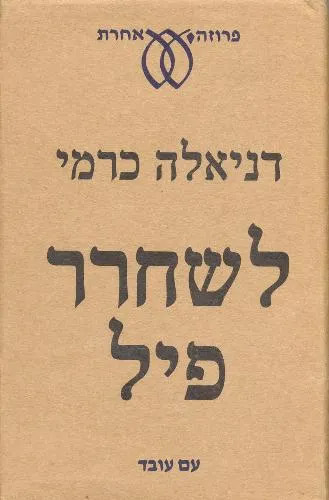
To Free an Elephant
With sensitivity, humor and a greal deal of originality, Daniella Carmi describes the world of people incarcerated in a Jerusalem mental institution. This lyrical novel tells the story of the patients from their own point of view rather than from that of the observer.
The mentally ill are depicted as amphibious creatures or as pajama-clad infants at the beginning of their evolutionary development. Then there are the doctors and nurses, who blend into the virtual reality created by the patients. Madness is conceived here as a kind of escape into a primeval state, and as a struggle to emerge from the primordial soup onto dry land. This process passes through swamps, islands, mountains and fields, and the narrator does not attempt to analyze it in psychological terms. Therein lies the power of the book: it creates another reality that the reader can sense and identify with.
While this is the story of Maurice, Alex and Arik, each with an identity and memories of his own, it is above all the story of the narrator, who is fleeing from her childhood memories, cut off from a mother who is in some remote country. Once she used to write appeals for help on railway carriages; now that she is an adult, she travels by train to a meeting with the “elephant liberator,” since the elephant symbolizes intelligence, power and freedom. The book contains photographs of psychiatric hospitals in Jerusalem, all of which belonged to Palestinians in the pre-State period. In this way, Carmi hints at the parallelism between the situation of the Palestinians and the condition of mental patients in Israel, who are rejected by society, but are released, go out into the world and try to live – despite everything – within the Israeli experience.

